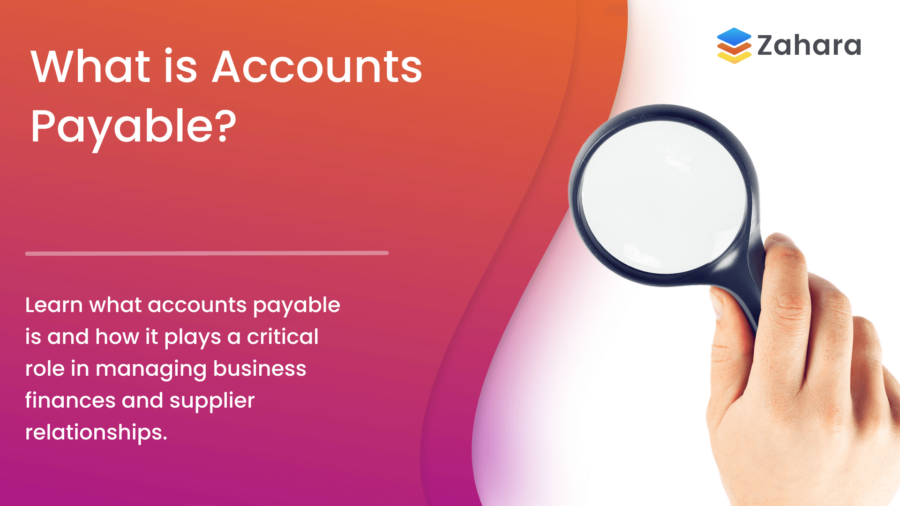Accounts Payable (AP) is a key function in every business. It tracks what you owe to suppliers and vendors and ensures those bills are paid on time. Managed well, it can improve your supplier relationships, support your cash flow, and reduce financial risk.
Table of Contents
This article explains what accounts payable is, how it works, why it matters, and how modern businesses manage AP using automation tools.
What Does Accounts Payable Mean?
Accounts payable refers to the outstanding bills or short-term debts a company owes to its suppliers for goods or services already received. These are considered liabilities on your balance sheet, and they’re usually due within 30 to 90 days.
Put simply, AP is what your business owes—not what it’s owned.
Where Does Accounts Payable Sit in the Financial Workflow?
AP lives in the purchase-to-pay cycle. Here’s a simplified version:
- A purchase order (PO) is raised.
- The supplier sends an invoice.
- The invoice is matched to the PO and goods received.
- The invoice is approved.
- The invoice is paid.
Every step above is part of the AP function.
Accounts Payable vs Accounts Receivable
| Feature | Accounts Payable | Accounts Receivable |
|---|---|---|
| Definition | Money your business owes | Money owed to your business |
| Appears as | Liability | Asset |
| Managed by | AP Team | AR Team |
| Goal | Pay suppliers on time | Get paid by customers |
Want more detail? Read our comparison post: Accounts Payable vs Accounts Receivable for Business Owners
What Does the AP Team Actually Do?
- Matching invoices to purchase orders and delivery receipts
- Ensuring invoice accuracy
- Routing invoices for approval
- Managing payment schedules
- Handling supplier queries
- Keeping clean audit trails
Why Is Accounts Payable Important?
- Cash flow control: You can plan payments better and avoid surprises.
- Cost savings: Avoid late fees and early payment penalties.
- Audit readiness: Clean documentation makes audits smoother.
- Supplier relationships: Paying on time earns trust and can improve terms.
- Fraud prevention: Structured processes reduce the risk of invoice fraud.
How Does Accounts Payable Work in Practice?
1. Purchase Order Created
The finance or procurement team issues a PO to a supplier, outlining what’s being ordered and the agreed terms.
2. Goods or Services Delivered
The supplier delivers what’s promised, and your team confirms receipt.
3. Invoice Received
The supplier sends an invoice. The AP team checks it against the PO and delivery note.
4. Invoice Approved
Once confirmed, the invoice is routed for internal approval.
5. Payment Made
The invoice is paid according to the agreed terms—usually via bank transfer or scheduled supplier payments.
Zahara makes this easier with purchase order software and invoice approval software.
Common Accounts Payable Challenges
- Duplicate payments
- Missed invoices
- Late payments
- Fraudulent invoices
- Poor visibility over cash flow
This is where Accounts Payable automation software can make a big difference.
Automating Accounts Payable
Manual processes slow everything down. AP automation speeds things up by digitising invoice capture, approval workflows, and payments.
With Zahara’s invoice processing features, you can:
- Automatically scan and extract invoice data
- Match invoices to POs using OCR technology
- Route invoices for approval via custom workflows
- Schedule supplier payments in bulk
- Get real-time visibility into your spending
What Is an Example of Accounts Payable?
Say your construction company orders £10,000 worth of building supplies. You receive the goods and the invoice. Until you pay the bill, that £10,000 sits in your accounts payable.
When you pay it, the AP balance goes down.
Tips for Managing Accounts Payable Effectively
- Standardise your process. Use consistent workflows.
- Approve before you pay. Avoid paying invoices that aren’t checked.
- Use a PO system. It helps with accuracy and control.
- Keep clean records. For audits, cash flow, and reporting.
- Automate as much as possible. Save time, cut errors.
Need a PO system for small businesses? Zahara helps you get started fast.
Accounts Payable FAQs
Trade payables are a subset of accounts payable and refer specifically to amounts owed for inventory-related goods.
Accounts payable is a credit entry on your balance sheet because it represents money owed.
Common terms are Net 30, Net 60, or Net 90—meaning payment is due 30, 60, or 90 days after the invoice date.
Yes. Tools like Zahara automate everything from invoice capture to approval and payment scheduling.
Often the finance team or even the business owner. As you grow, it’s best to assign or hire a dedicated AP manager.
Final Thoughts
Accounts payable isn’t just about paying bills. It’s about managing your cash flow, building trust with suppliers, and keeping your business running smoothly.
If your team still relies on spreadsheets or email for approvals, it’s time to switch. Zahara’s AP automation platform helps finance teams take control—with less admin and more insight.


